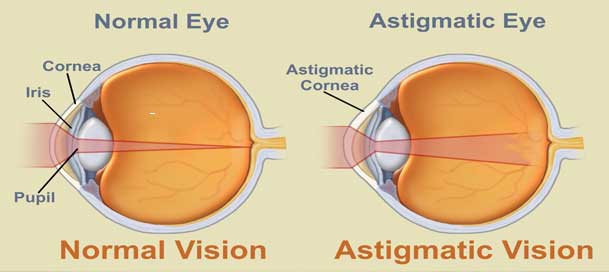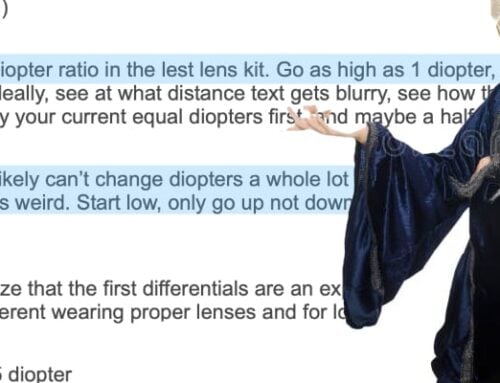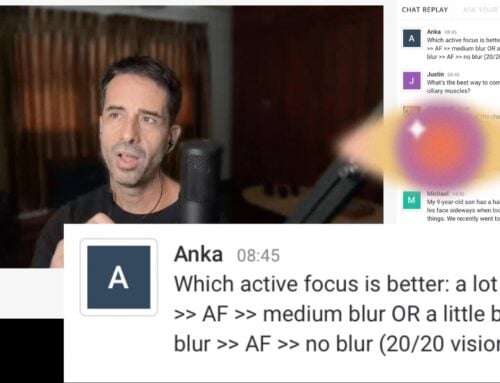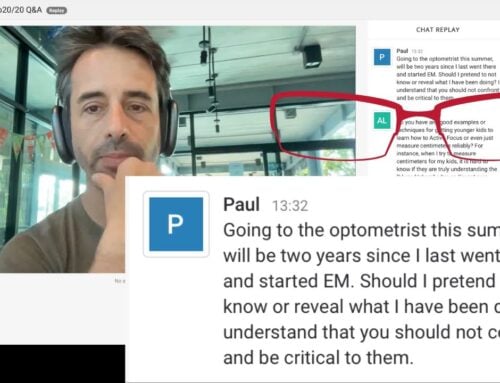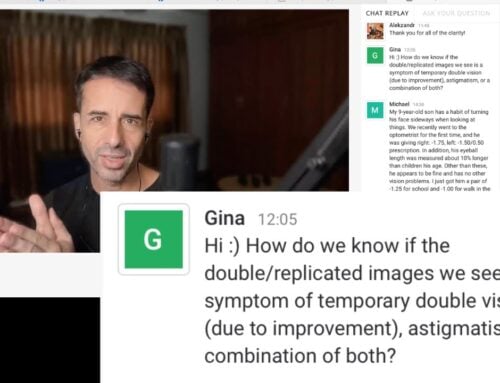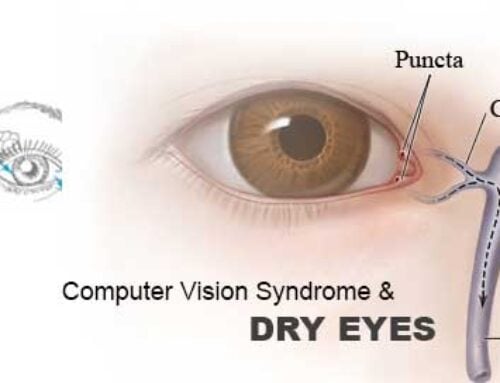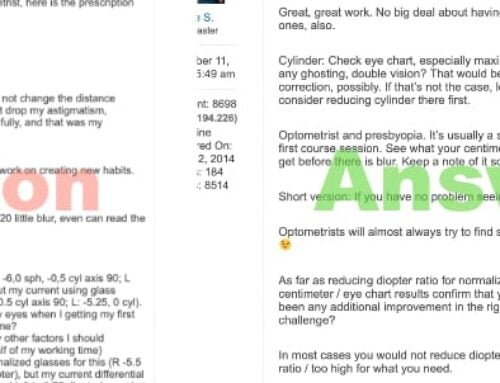Above: Yes, sometimes it’s the cornea. Other times, less so.
Somehow we ended up talking about various potential causes of astigmatism in the forum.
I briefly pointed to some studies looking at the connection between the ciliary muscle and astigmatism, even though I’m often less than entirely comfortable hypothesizing unnecessarily on this topic. Pointing out my approach yielded some interesting comments.
Here’s my original post/reply:
I don’t have the drive with my favorite studies with me now, but if you look on Google Scholar there is a fair bit on the ciliary-astigmatism connection:
As usual it helps to read multiple studies, some with different goals, to put together the pieces (astigmatism due to ciliary movement, easily created): http://onlinelibrary.wiley.com/doi/10.1111/j.1755-3768.1974.tb00373.x/abstract
Since this thread seems a good a place as any to reiterate my position on the science … having read so much of it, you can’t help but get a bit jaded. Confirmation bias and undisclosed motives, and how is easy it is to tweak a study to get just about any result you’re looking for – it’s almost impossible to *start* with science and arrive at a working, actionable solution to deal with the problem.
I use a lot of the science in the same way as ‘they’ do, to be perfectly honest. My #1 goal was to fix my myopia, and then I got curious what of my method would work on others, etc etc. It was all about trying things and looking at the outcome.
Not until later did I actually really start using supporting science to validate (part curiosity and part using the gravitas of ‘the studies’) what I found by trial and error (and a whole lot of participating test subjects back in the day). If you do it the other way around, it’s very possibly dog-chasing-tail, forever.
On astigmatism I’ve found that it’s one of the easiest of the visual ‘deficiencies’ to resolve. It’s almost humorous how banal the fix is, how broadly you can apply the generally correct stimulus, and for most people, astigmatism will disappear. It’s either funny or really disturbing how much seriously high tech (and shockingly expensive) equipment exists to measure astigmatism, and still over the past decade I’ve yet to encounter a notable case where astigmatism wouldn’t respond to stimulus (exceptions of course exist, but assuming an otherwise healthy eye it just seems so much like a really elaborate industry created around a virtual non-issue).
Toshiki adds to the thread:
I’m just reading a book (Antifragile by N. N. Thaleb, who also wrote The Black Swan) that says exactly that: Real and fundamental knowledge in most cases comes from practice/practition, application, engineering, experimenting, … – and not from science. Only afterwards do scientists investigate more closely, build coherent theories and so forth. It is only historians who believe that it is the other way around (so called linear model: basic scientific research → models → practical applications), which in fact it isn’t. The problem is when you see that there was some invention and at around the same time there was a lot of scientific research done in this area, then you are inclined to believe that it was this very research that fueled the invention. Only if you carefully look at both theory and practice and the exact time frames, do you find it was indeed the other way around (broadly speaking with some very notable exceptions).
Of course I am a big fan of clinical studies and science. It’s worth pointing out the limitations though, as well as how I work – in the interest of full disclosure.
The original thread was about myopia having morphed into astigmatism (interesting topic, full thread is here). It can be reassuring to at least have a reasonable potential explanation, especially if you’re ready to take action, quantify results, and not end up in “paralysis by analysis”, with conflicting science.
What it boils down to is your own experience, and what actually works to get you those 20/20 gains!
Cheers,
-Jake

